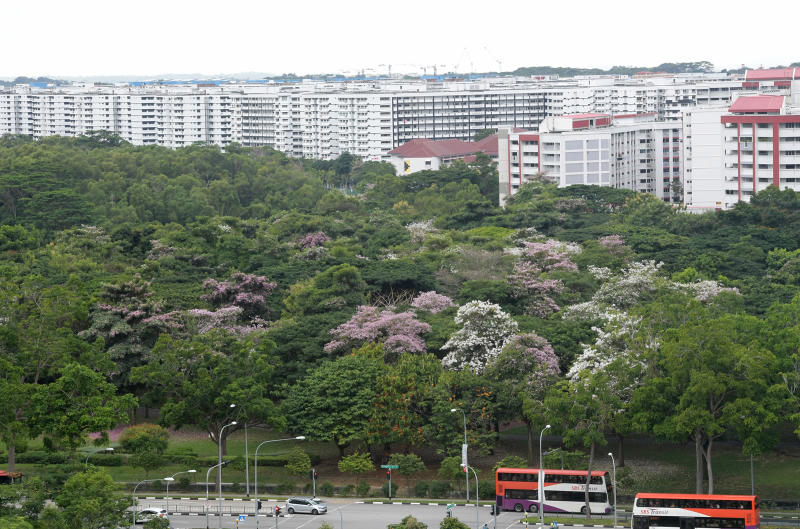Three-year project will quantify benefits of Singapore's natural environment
Sign up now: Get ST's newsletters delivered to your inbox

Trees can lower urban temperatures through providing shade and transpiration when water evaporates from leaves, stems and flowers.
PHOTO: ST FILE
SINGAPORE - An ambitious project to quantify all the benefits provided by Singapore's natural environment was launched on Thursday (Aug 16), aiming to provide a framework for developers to assess the trade-offs between development and conservation.
The project will determine the economic, social and environmental benefits of the country's forests, parks, waterways, and marine habitats. The effort to study the nation's "natural capital" will take three years.
"In spite of the national effort towards greening the city-state, we still need to know more about how to incorporate nature into holistic planning at a national scale," said a spokesman for the Singapore-ETH Centre, one of the project's leaders.
For example, trees can lower urban temperatures through providing shade and transpiration - when water evaporates from leaves, stems and flowers. While the effect of trees on temperature can be measured easily, other advantages they bring may not be as well-known.
Trees also help to slow storm-water runoff and help soil to absorb more rainwater, which reduces the strain on Singapore's drainage network. Furthermore, forests provide outdoor recreational possibilities that positively impact physical and mental health.
The National University of Singapore is the other project leader, and the two organisations will bring together architects, biologist, ecologists, economists, geographers, and software engineers.
The team will create a framework to define Singapore's most important ecosystems, determine their benefits and agree on tools to measure them.
They will then assess the current state of the country's land, coastal and marine habitats, quantifying their economic, societal and environmental benefits.
With this information the team will programme a tool for planners and developers that can both visualise data on the benefits of natural capital and simulate the impact of various scenarios on Singapore's natural capital.
Singapore-ETH Centre principal investigator, Dr Dan Richards, said: "This will equip planners and developers to make better- informed decisions when faced with development-environment trade-offs, and also identify opportunities for the stronger incorporation of natural capital into our urban landscape."
Professor Adrienne Gret-Regamey, one of the lead principal investigators of the Natural Capital Singapore project, said: "Besides providing the framework and tools to guide policy, our team seeks to share knowledge on natural capital and bring about a greater awareness and appreciation of what nature has to offer."


